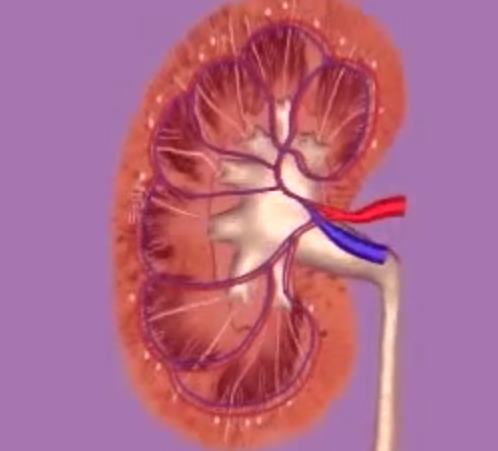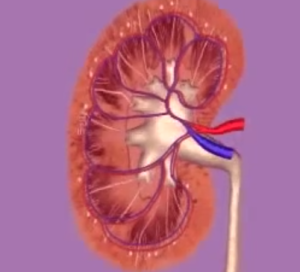Kidneys are a vital organ of the body. They perform the important function of filtering the unwanted substances from the body and eliminating them via urine. Alcohol is one of these unwanted items that offer no significant nutrition to the body, but in fact buildup calories and dehydrate the body.
Consumption of excessive alcohol or alcohol abuse can impair kidney functionality, thereby causing kidney pain. Kidney pain that occurs after eating may be caused due to varied underlying conditions as discussed further below in the article.
Kidney pain, after eating or after drinking alcohol, can be very severe and vary from one person to another. The pain may be sharp and occur suddenly; it may come and go in between intervals of time. Some people may experience minor pain in the upper back, or in the sides or the flanks, or the pain may be so intense and debilitating that patients may not be able to carry out even the daily simple tasks.
Some of the common causes of kidney pain after drinking alcohol or eating are discussed below.
Causes of kidney pain after drinking alcohol
Kidney pain after drinking alcohol commences sometime after a drinking session. The pain is sharp, intense, and often aggravates during the night. Even after a patient stops drinking, he/she may continue to experience dull pain that may persist from a few days to some months.
Kidney pain after drinking alcohol may occur due to the following causes:
- In addition to filtering the waste materials from the body, the kidneys also have a role to play in ensuring that the body is kept well hydrated. The capacity of the kidneys to process alcohol is very limited. Thus, when alcohol is consumed in excessive amounts, the kidneys need to work harder than usual for filtering it from the body. This can cause increased outflow of urine, eventually leading to dehydration. Decreased water content then affect the kidney function as well as the functions of the cells and other organs in the body, thereby causing kidney pain.
- Excessive formation of urine can have an adverse effect on the renal pelvis, a tubular structure via which urine passes into the ureter. This can result in kidney pain. Such pain is usually short-term and abates as soon as the excess urine is expelled.
- The kidneys control the outflow of fluids from the body through urine via the use of ADH or the antidiuretic hormone, thereby ensuring a balance between the water levels absorbed and released by the body. Alcohol however hampers the secretion of the hormone into the bloodstream, which then causes dehydration, impaired kidney function, and eventual kidney pain.
- Dehydration caused via alcohol abuse may increase the risk to the development of kidney stones. The vulnerability is increased twofold in people leading a sedentary lifestyle of consuming fiber-poor fatty meals. The combination of kidney stones presence and increased amounts of urine can cause the stones to rapidly move out, which may then cause kidney pain.
- PUJ obstruction or Pelviureteric Junction obstruction is another cause of kidney pain after drinking alcohol. It can be a congenital condition or form at a later point in time. The disorder causes blockage of the renal pelvis, which ultimately triggers back pain or flank pain. Intake of alcohol can increase the severity of kidney pain associated with PUJ obstruction.
- One of the primary causes of liver disease is alcohol abuse. Liver conditions tend to impair kidney function and change the rate at which blood flows to the kidneys. The kidneys thus need to work harder so as to be able to efficiently filter the blood and compensate for the reduced blood flow. Eventually increased urine elimination causes dehydration and kidney pain.
Kidney pain after eating
Kidney pain after eating usually occur due to the presence of a variety of conditions as discussed below. It may not be possible to completely prevent these conditions, but patients may follow certain precautionary measures to reduce their severity and frequency. Regular kidney pain after eating needs to be checked by a doctor and medically treated as non-treatment can eventually result in kidney failure.
A few common conditions that may cause kidney pain after eating are as follows:
- Pyelonephritis is a common type of kidney infection that is marked by inflammation of the tissues present within the organ. Kidney pain associated with pyelonephritis is typically intense and severe.
- Kidney pain associated with kidney stones occurs due to swelling up of the kidney, which in turn is caused due to trapping of the stone in the tube which connects the bladder to the kidneys. The kidneys swell up because the path through to the bladder is blocked by the stone/stones. Consequently, the resultant kidney pain is excruciating, particularly during urination.
- Kidney infarction or bleeding within the kidney can also trigger intense and episodic kidney pain after eating.
- Other causes of severe kidney pain after eating include polycystic kidney disease, kidney cancer, urine flow obstruction, arteriosclerosis, and ureteral or bladder spasms
Treatment of kidney pain
Treatment of kidney pain after eating or after drinking alcohol is dependent on the underlying cause, the severity of the associated pain and additional symptoms, and the overall health of the patient. Doctors will carry out a plethora of diagnostic tests to rule out varied conditions and zero in on the correct cause.
The duration, scope, and mode of treatment is also dependent on the underlying cause. Some causative conditions can be treated with medications in some days, while other ailments like kidney stones that cannot be removed via medications may need surgical intervention. In all instances, it is important for patients to eat a balanced diet and drink lots of water to keep the body hydrated.
With regards to alcohol-induced kidney pain, it is important for patients to understand that the condition is not isolated to just binge drinkers and alcoholics. Even social drinkers as well as occasional drinkers are susceptible to kidney pain after drinking alcohol. In such cases, the first step is to completely stop drinking alcohol. This is the only way to detoxify the liver and the kidneys. Patients who are addicted to alcohol may join a support group such as ‘AA’ to continue abstaining from alcohol.

